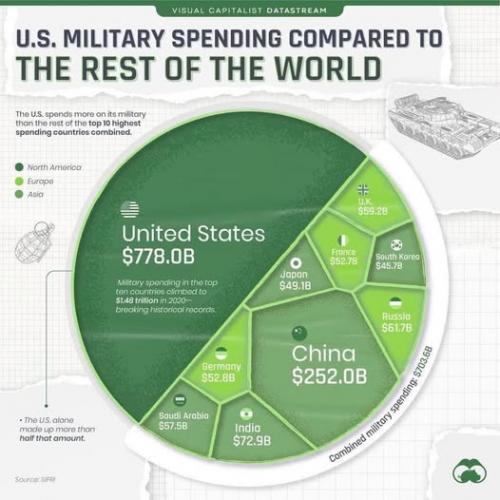The social imaginary and dual power
As I said in my last diary, my favorite Star Trek is Star Trek: Lower Decks. I would add to that, here, that one of my favorite episodes of Lower Decks is "wej Duj," episode 9 of season 2. Here are some YouTube samplings of the episode. Here is Memory Alpha's synopsis.
As I have observed previously, the Star Trek universe is best explained by two deus ex machina gestures:
1) The human species is quite obviously not going to give birth to a Starship Enterprise two or three centuries from now. But, as related in Star Trek: First Contact, what makes the imaginary Star Trek universe seem possible is that the human race is, somewhere along the line, saved from its own folly by a technologically and culturally superior imaginary species, the Vulcans. This gesture puts Star Trek in the realm of pure fantasy, but we can live with it.
2) In the imagined Star Trek future, people are still as screwed up inside as they are now. What saves the inhabitants of the imagined future from our fate (which I will describe below) is an array of imaginary technologies, many of which are physically impossible in our universe.
At any rate, the opening scene in "wej Duj" is that of the regular Lower Deckers of the series eating lunch on the Federation starship Cerritos, the protagonists, discussing what they're going to do with some extended off-duty time. Most of them, it turns out, are going to socialize with their commanders.
The scene soon thereafter shifts to the Lower Deckers on a Klingon ship, and thereafter to the Lower Deckers on a Vulcan ship. We also get to see the Lower Deckers on a Pakled ship, and in a Borg cube. The same dynamic is at work in each case: there is a social hierarchy, with upper decks over lower decks, but the social imaginaries are screwed up, and so you have misfits and conformists. (Well, the Borg drones don't really have lower decks or a social imaginary, because they have a hive mind instead of personalities.)
On the Federation ship, the existence of a hierarchy makes the off-duty time into a series of liminal events, which are all interrupted by the battle scene at the end of the episode. The misfit is Ensign Boimler, who is overly ambitious for his low status and who therefore socializes with his commanding officers under false pretenses. On the Vulcan ship, the misfit is T'Lyn, who cannot abide by the ideological definition of "logic" followed by the other Vulcans. She, T'Lyn, saves them from certain death, but the Captain has her transferred off the ship against her will and desires anyway. On the Klingon ship, the misfit is Ma'ah, who recognizes that the Klingon fetish of combat is counterproductive to their collective cause - yet he's smart enough to take advantage of their fetish to manipulate himself into the Captain's chair.
At the end of the episode, T'Lyn and Ma'ah save the day from the Pakled enemy. T'Lyn does this by advancing defensive war technology, and Ma'ah by withdrawing his ship from the battlefield. Here it is important to remember that in the Star Trek universe, the foibles of the characters, each motivated by flaws in the social imaginary, do not lead to the disastrous consequences they would see in our universe. Star Trek depicts a technological utopia, which lets everyone off the hook for any of their other problems.
In our universe, the social imaginary compels our politicians to be liars. Nearly everyone in the political class must fool the people and take the special interest money, because the common people have been trained to ignore political reality and vote for whomever offers the most appealing image. And the special interests? They support ideologies which are completely detached from reality, whether they be neoconservative or neoliberal.
The fundamental problem with the US social imaginary is that America is so focused upon profit that it cannot pursue honest business, and so we collectively proceed toward financial doom. Eventually the rest of the world will act upon their collective distrust of us, and the value of the Dollar will collapse. Inside, we imagine that the problem with honesty can be "solved" by substituting public relations, advertising, marketing, and deal-making for sincerity. It can't. And technology does not save us because the function of our military, our primary technological fetish, is to spend more than any other country on gold-plated yet relatively ineffective weapons. This is the primary reason why the Russians are winning in Ukraine.

I would not, however, characterize the existing reality as one of "fascism." The Fascists destroyed their political opponents and imposed dictatorships for the sake of strong corporations and strong government. What currently rules the US will, instead, ultimately make America small again, and future generations will hate them for having brought to ruin what they promised to "make great." America is a host organism being devoured by a small legion of human parasites. Think, not Hitler or Mussolini, but rather a swarm of vultures eating the remains of a dead gazelle.
Or armed robbers breaking in and entering your home in full daylight, knowing the police will never come. The key events in determining the present-day political imaginary are the genocide in Gaza and the feeding of Ukraine to Russia. Once they've got you looking away when those things happen, they can destroy anything and everything, perform acts of whatever violence they want, and you will continue to look the other way. But nothing is being built here. The Nazis recruited their masses. The Trump forces are simply throwing everything away, everything about the Federal government that might possibly help you. The Biden forces gifted us the Trump forces.
In conclusion, we are to heed the famous words of Rosa Luxemburg:

Luxemburg, of course, would also have organized against what is actually happening, as well as shouting the truth to the world. Correspondingly, we must oppose the present-day political class, at least, though what the socialists used to call "dual power." If all our institutions can achieve is to drive us to destitution while donating the services of our government to the benefactors of our political classes, we will have to invent a new system from scratch. The new system will have to privilege honesty, and honest resistance. In that vein, perhaps the name of the new political party should be something on the order of the "Actually Resist Instead of Just Pretending" party.


Comments
The rest of the world has figured it out
America's social imaginary is so hopelessly polluted that it's, from their perspective, past time to abandon the US political class.
"It hasn't been okay to be smart in the United States for centuries" -- Frank Zappa
America's social imaginary is so hopelessly polluted
half of America probably wants to leave it. What you describe has become so normalized here it doesn't register anymore. You can't change it, so you try to move beyond it hoping somehow things will change, but it never does, except for the worse. As you show, we don't see it, but the world does. One thing, the worlds wealthy see the US, via Wall St. as the worlds casino. I think that's all that props us up. If a new and better casino opens up somewhere else, then we're probably over.
Yes!
Especially this point:
Though it must be added that this:
is merely a depiction of what has happened so far. As for the future, we shall see.
"It hasn't been okay to be smart in the United States for centuries" -- Frank Zappa